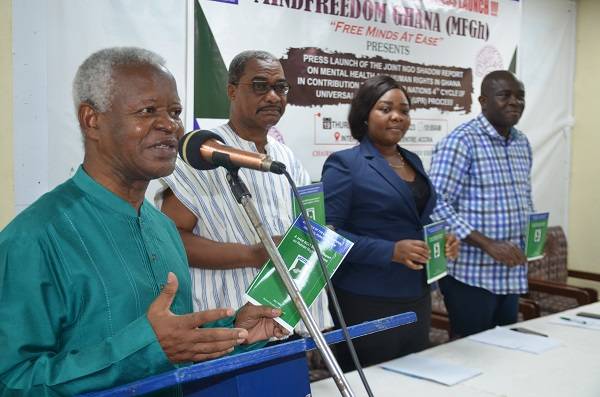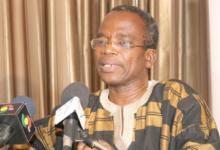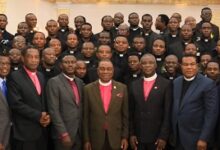
Evidence still abound of abusive practices meted out against mentally-challenged persons in many traditional and faith-based healing centres (TFBHCs) across the country, a latest report on human rights violations has established.
It says the use of hostile restraining measures including shackling and chaining of persons with mental health conditions persists in many of these centres which were mostly unregistered and unregulated in their operations.
This is compounded by the absence of a policy framework to integrate the activities of TFBHCs into mainstream psychiatric services in the country leading to many individuals with mental illness falling victim to their activities.
Conducted by MindFreedom Ghana, a non-governmental organisation, the report reviewed human rights situation of persons with mental health conditions between January and July 2022, assessing also, Ghana’s progress since its last “Universal Periodic Review (UPR)”.
The UPR is a United Nations procedure carried out every five years, under the auspices of the Human Rights Council with the aim of improving human rights situation globally while addressing violations in all member countries.
Launching the report in Accra yesterday, the former Chief Executive Officer of the Mental Health Authority (MHA), Prof. Akwasi Osei, admitted that of about 1,075 TFBHCs identified by the Authority in the last three years, it had engaged only three to streamline their operations.
The inadequate visits, he said, was due to financial constraints in contravention to Ghana’s Mental Health Act 846, 2012 which among others mandates the establishment of visiting committees and tribunals across the country to conduct monitoring and ensure that the fundamental rights of the mentally ill are respected and not violated.
“We have made significant
strides in our human rights efforts as a country but there still are gaps and this are not issues we want to live with in the 21st century and we need to work harder to reduce these human rights abuses in our society.
A legal officer at the Commission of Human Rights and Administrative Justice (CHRAJ), Lynda Adjei, in a keynote address said, in line with ratifying Ghana’s Optional Protocol to the Convention against Torture and Other Cruel, Inhuman or Degrading Treatment or Punishment Act (OPCAT) the Commission had been designated as the country’s National Preventive Mechanism (NPM).
NPMs are independent visiting bodies established at domestic level, composed of one or more bodies, for the prevention of torture and other cruel, inhuman or degrading treatment or punishment.
In view of that, Ms Adjei said plans are far advanced to amend the CHRAJ Act, 1993 (Act 456) to widen its mandate to include monitoring the state of all detention centres across the country including prayer camps and hospitals where persons may be detained for various reasons to ensure their rights were protected.
The Executive Secretary of MindFreedom Ghana, Mr Dan Taylor, called on government to take immediate action in enforcing the ban on maltreating persons with psychosocial disabilities ensuring that subjects were freed and provided with appropriate support while prosecuting those responsible for such ill acts.
“We must progressively develop voluntary and accessible community-based mental health and support services in consultation with persons with psychosocial disabilities and with support of donors and partners,” he said.
BY ABIGAIL ANNOH







